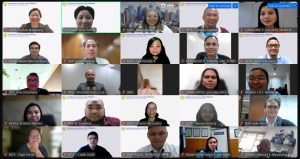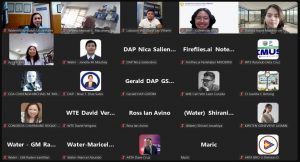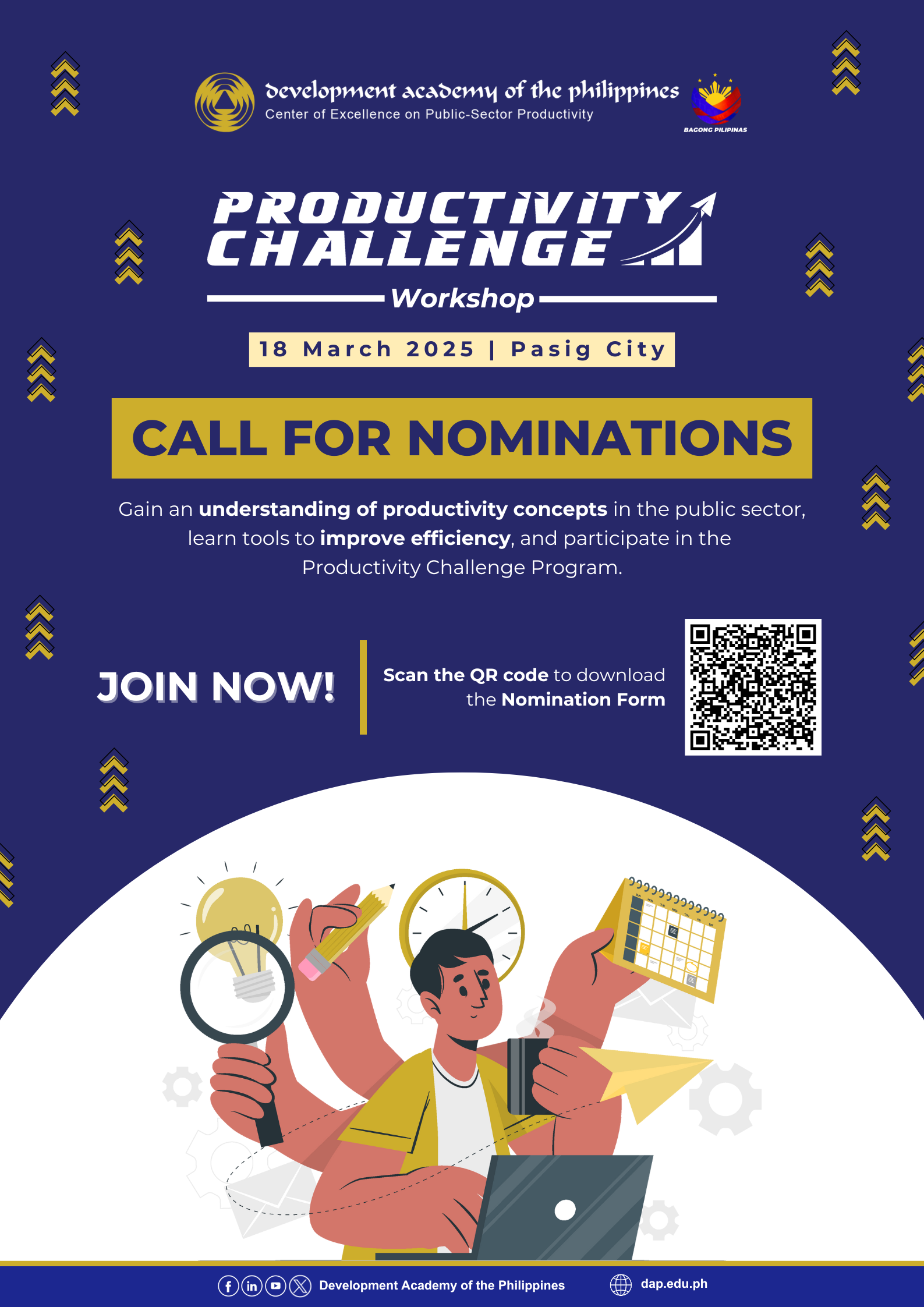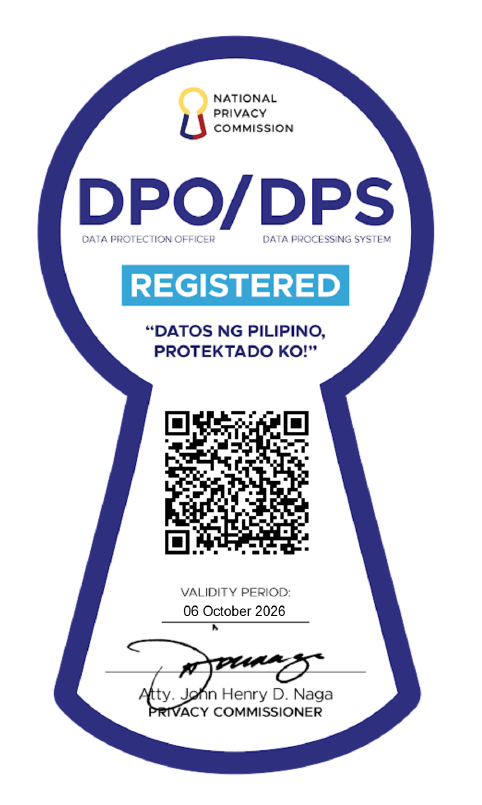
The Development Academy of the Philippines (DAP), through its Modernizing Government Regulations Program (MGRP), convened the 2024 Regulatory Review Public Forum to gather insights and recommendations aimed at improving the national business environment. The forum served as a platform to present and validate the findings of the 2024 Regulatory Review, which focused on Government-to-Business (G2B) and Agency-to-Agency (A2A) regulations in the Water Utility, Shipbuilding and Ship Repair (SBSR), and Waste-to-Energy (WtE) industries. Moreover, the event facilitated stakeholder feedback to refine and finalize recommendations for streamlining regulations across these key sectors.
A total of 49 representatives from regulatory agencies, government institutions, the private sector, academia, and civil society participated in the session, which was facilitated by MGRP Regulatory Review Component Project Manager Rosario De Castro.
In his opening remarks, DAP Productivity and Development Center Vice President Arnel Abanto underscored the significance of regulatory reform in improving processes and reducing compliance burdens for businesses and citizens. He encouraged stakeholders to actively participate to ensure the proposed reforms align with industry needs.
Closing the forum, Productivity Development Research Office Director Monica Saliendres acknowledged the valuable contributions of participants and highlighted the critical role of local government units (LGUs), private sector stakeholders, and civil society organizations in advocating for consistent regulatory reforms. She emphasized that adopting the proposed reforms would create a more efficient and business-friendly regulatory environment in the Philippines.
Key Issues, Findings, and Initial Recommendations
The forum featured presentations from study teams on key issues, findings, and initial recommendations for the WtE, Water Utility, and SBSR industries. Breakout sessions provided stakeholders with opportunities to give further feedback on the proposed reforms.
Waste-to-Energy Industry
The regulatory review of the WtE industry highlighted challenges in disaster waste management and disposal, insufficient regulations, fragmented permitting processes, and public resistance. These issues underscored the need for targeted regulatory reforms to harmonize existing laws, streamline permitting, and establish clear operational, emissions, and treatment standards for WtE facilities.
The study team recommended revising key regulations that impose stringent restrictions on emissions and incineration, limiting the adoption of advanced WtE technologies despite their potential for cleaner operations. Among these regulations are Republic Act No. 9003 (Ecological Solid Waste Management Act of 2000) and Republic Act No. 8749 (Philippine Clean Air Act of 1999).
Water Utility Industry
The Water Utility industry was found to operate under a fragmented regulatory framework involving multiple government agencies with overlapping and sometimes conflicting mandates. This complexity leads to inefficiencies, inconsistencies in enforcement, and difficulties in compliance for water service providers due to redundant documentary requirements and siloed evaluations by different agencies.
To address these challenges, the study recommended both immediate and long-term measures, including: a) establishing a one-stop shop for multi-agency transactions; b) harmonizing tariff-setting methodologies; c) conducting joint technical inspections; and, d) creating an apex body to oversee the entire Water Utility industry.
Shipbuilding and Ship Repair Industry
The review of the SBSR industry identified regulatory challenges related to ISO certification requirements and the outdated Implementing Rules and Regulations (IRR) of Republic Act No. 9295 (An Act Promoting the Development of the Domestic SBSR Industry). The 2022 SBSR status report by the Maritime Industry Authority (MARINA) revealed that only 21 percent of the country’s 124 shipyards have ISO certification, a gap attributed to limited awareness of its importance.
With the ongoing construction of new vessels, the study team called for an update to the IRR of RA 9295 to include new vessel types in tax exemptions, thereby enhancing the sector’s competitiveness. Other key issues identified include: a) approval process for vessel registration involving multiple government agencies; b) outdated and inefficient shipyard facilities; c) shortage of skilled workers; d) limited local supply of materials; e) high material costs; and inconsistent safety standards.
Participants recommended reviewing the Philippine Ship Safety Rules and Regulations to strengthen industry safety compliance and improve regulations governing the construction of small boats primarily used for domestic transport and freight.

Next Steps
The final reports on the 2024 regulatory reviews, incorporating stakeholder feedback, are expected to be released in the first quarter of 2025.
The 2024 Regulatory Review Public Forum reaffirmed DAP’s commitment to advancing meaningful regulatory reforms through the MGRP. The Academy encourages government agencies and the public sector to actively participate in future consultations and discussions to enhance the Philippines’ regulatory framework.
For more information on the Modernizing Government Regulations Program, visit www.dap.edu.ph or contact the MGRP team at mgr@dap.edu.ph.




